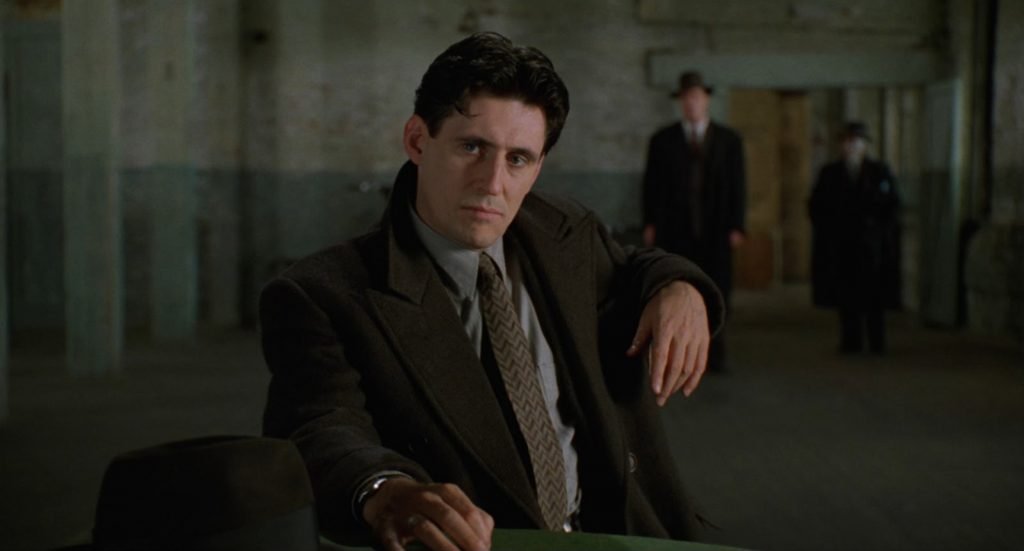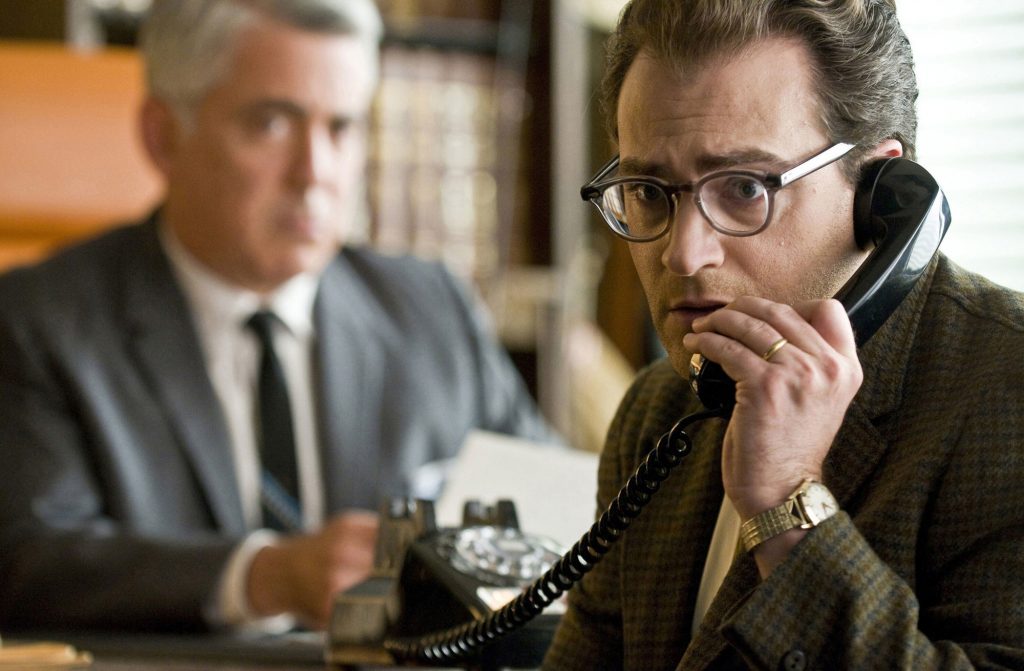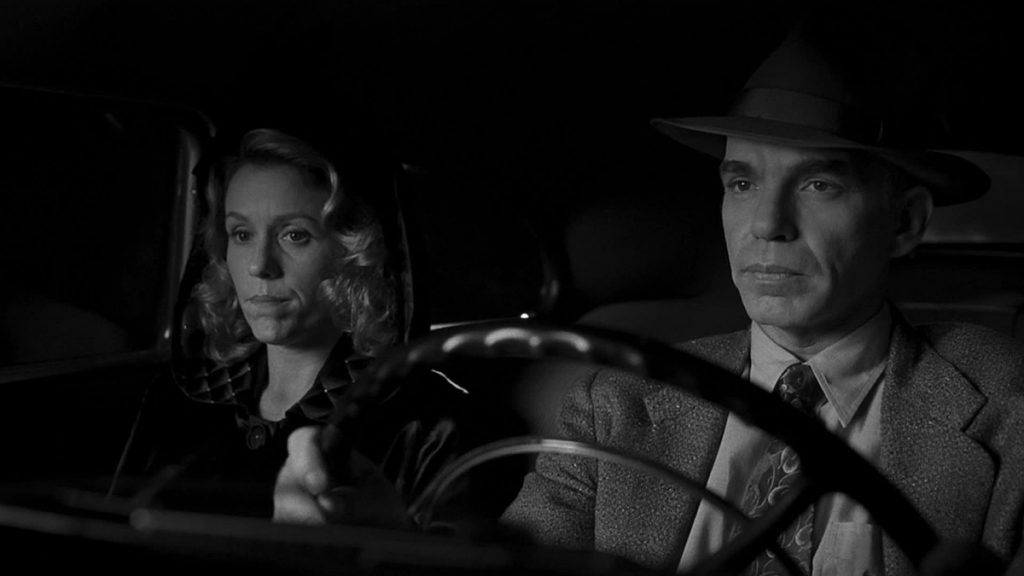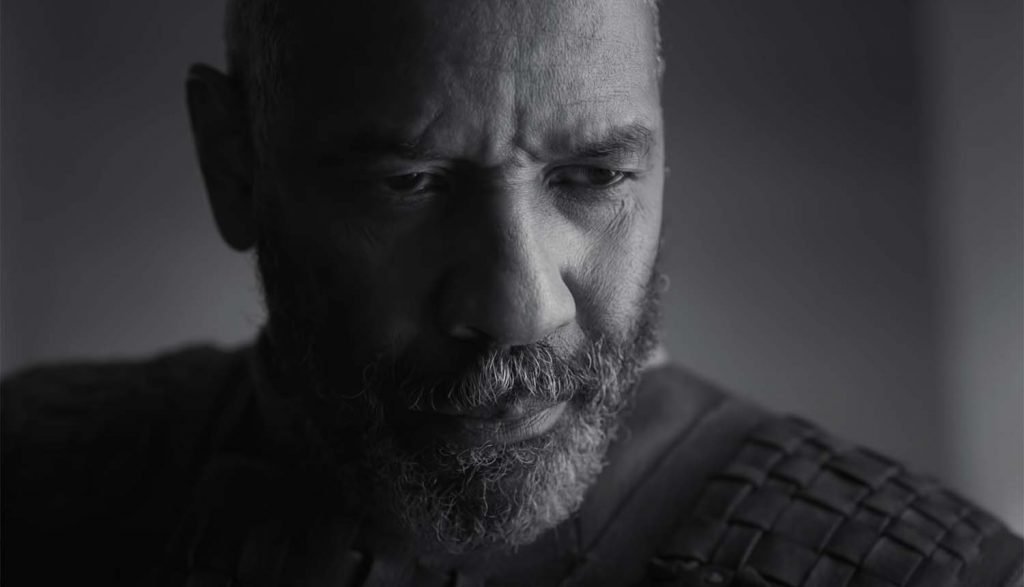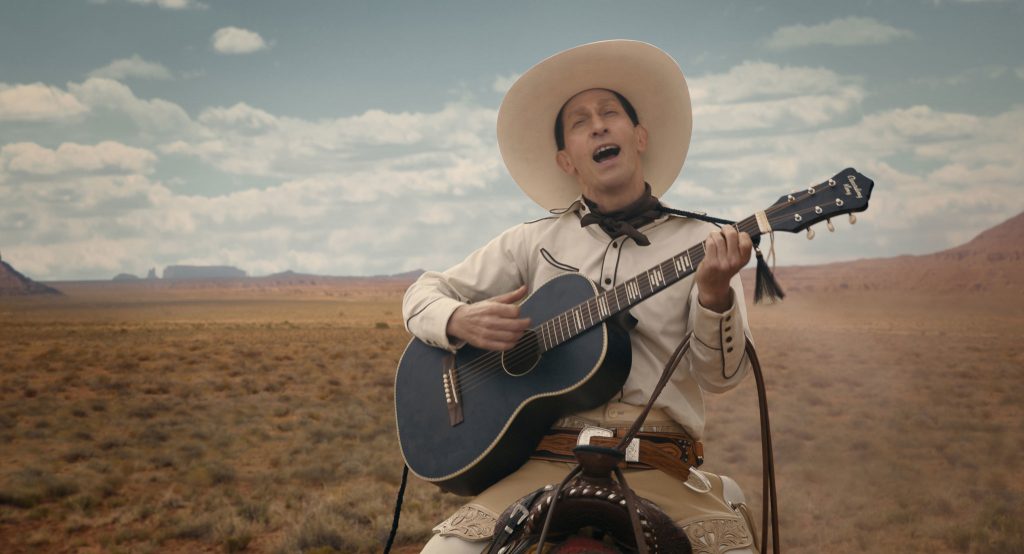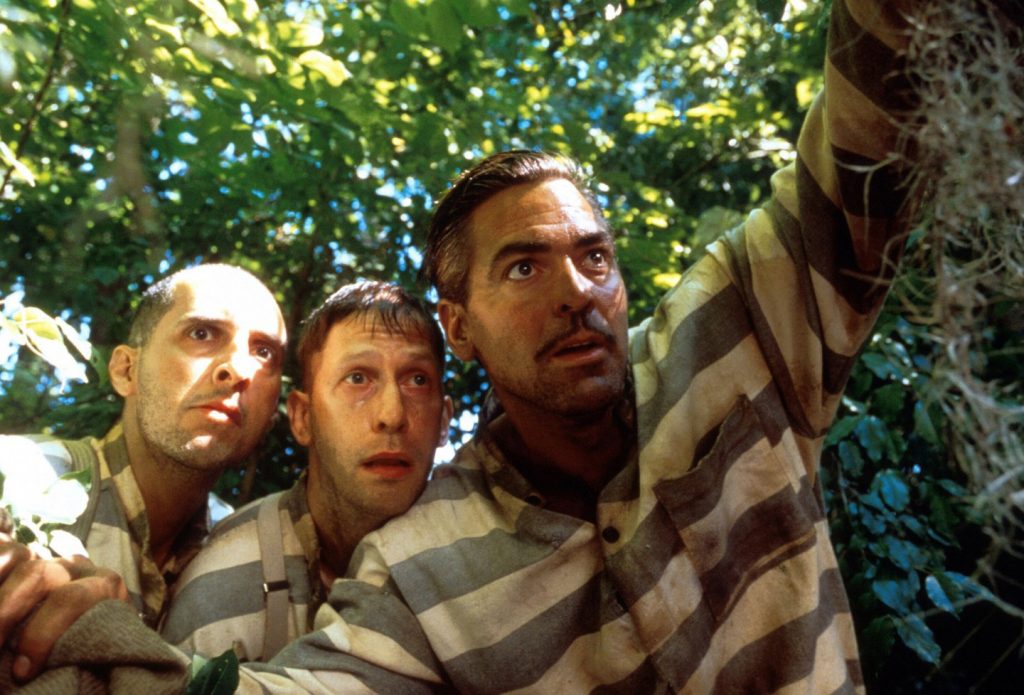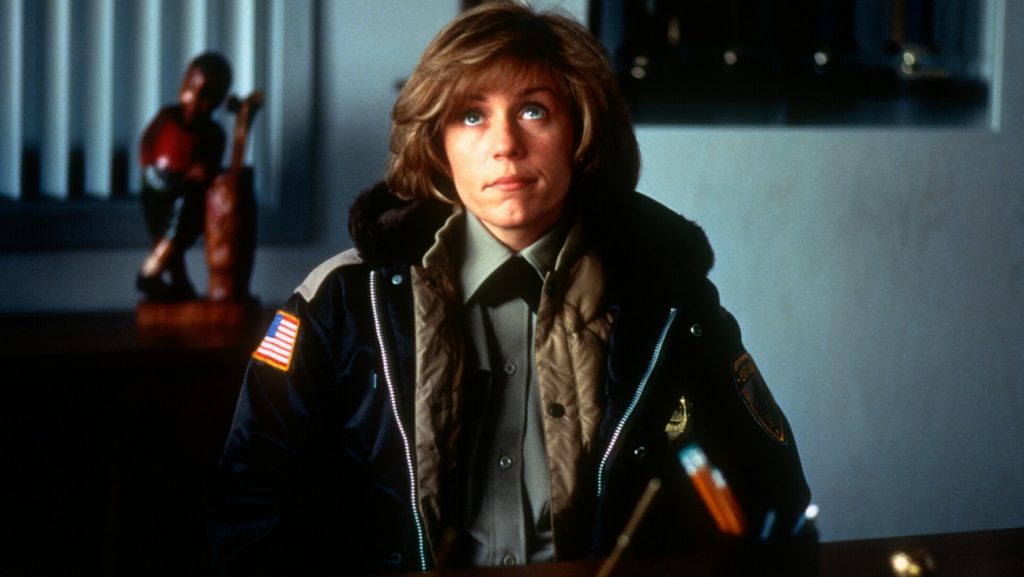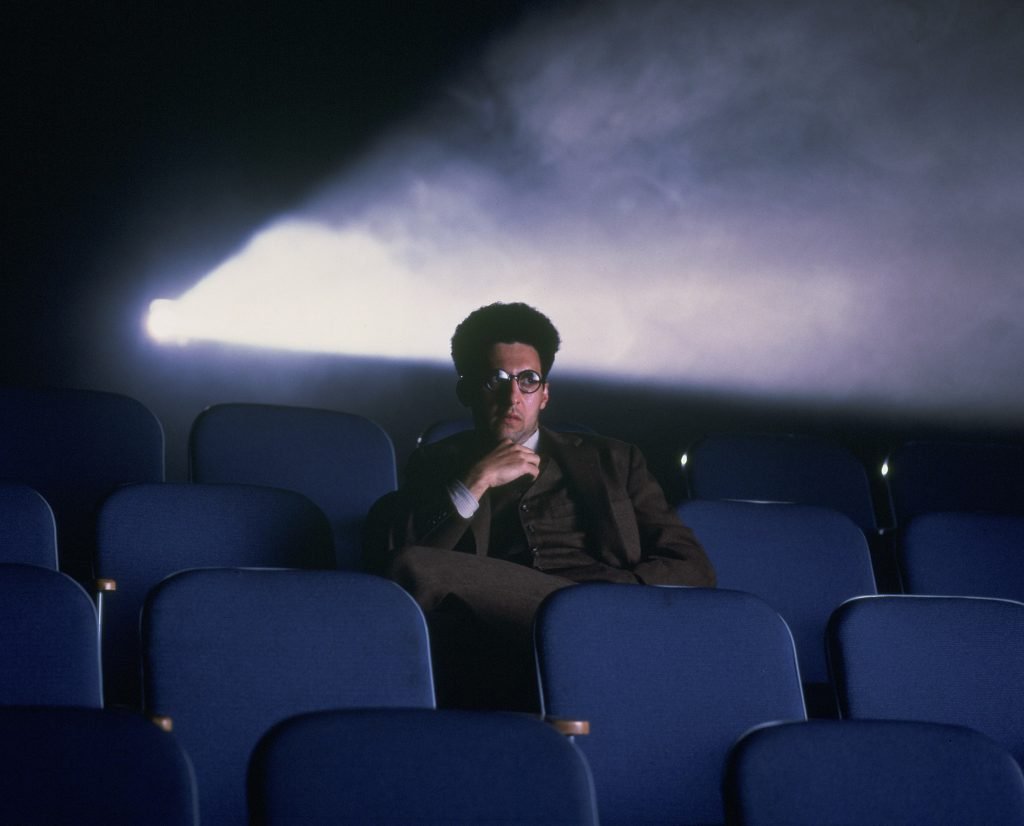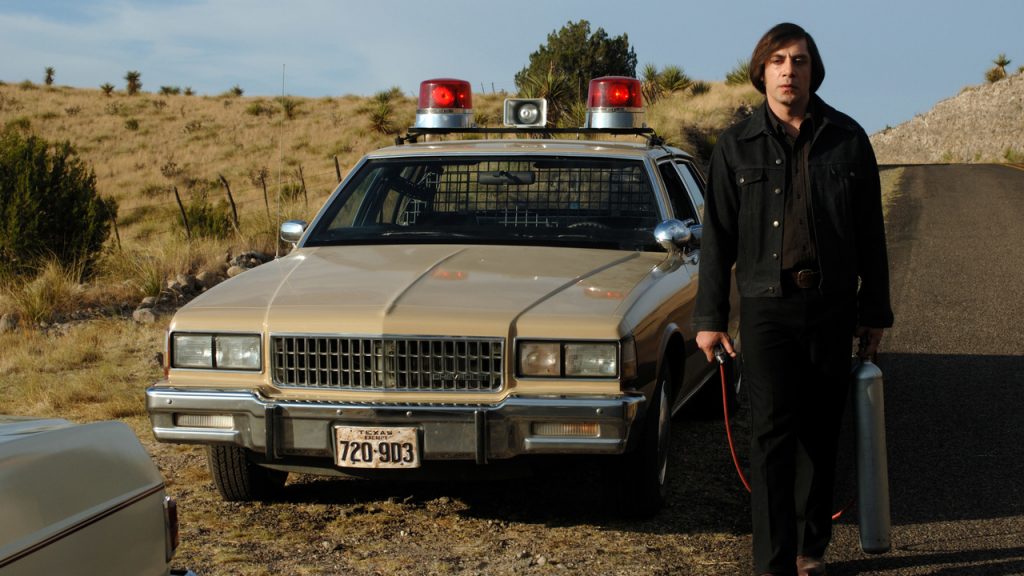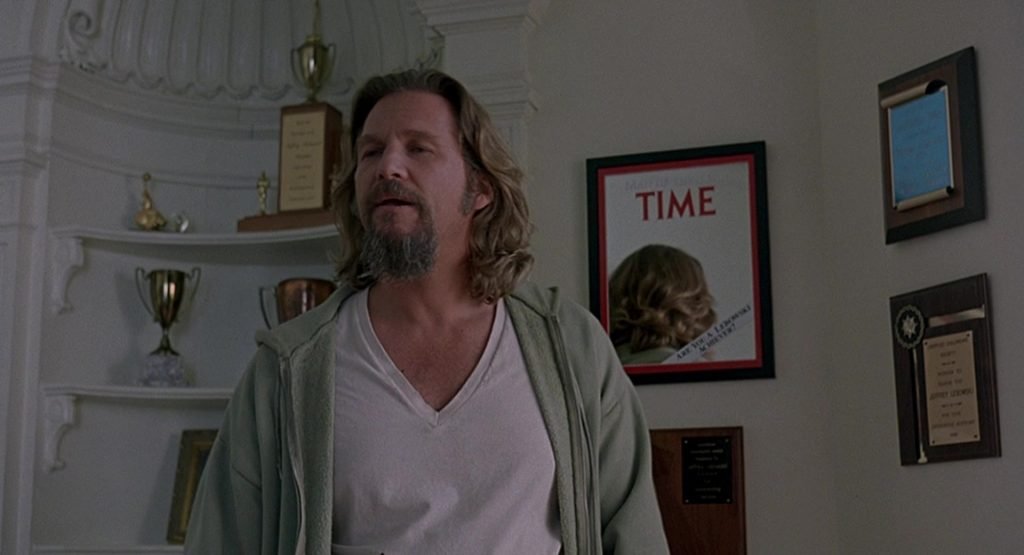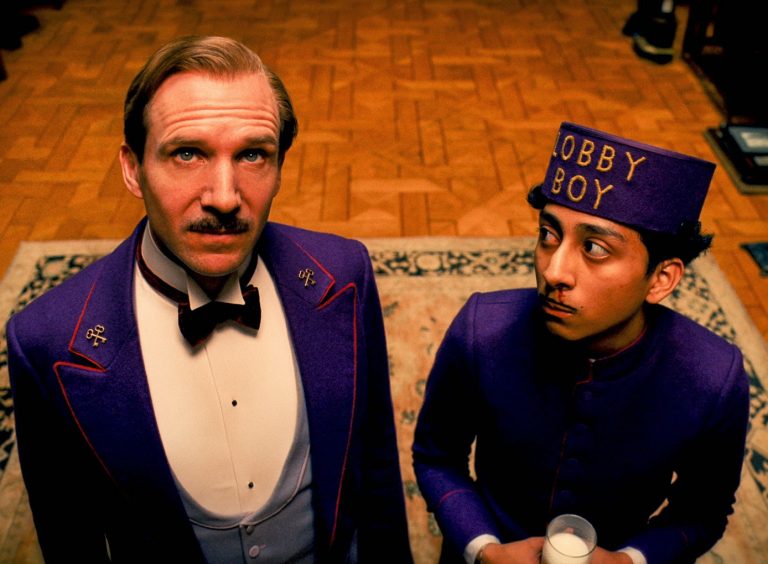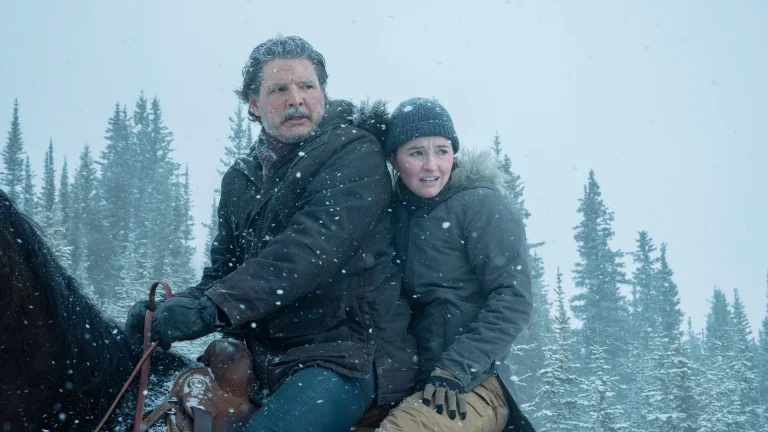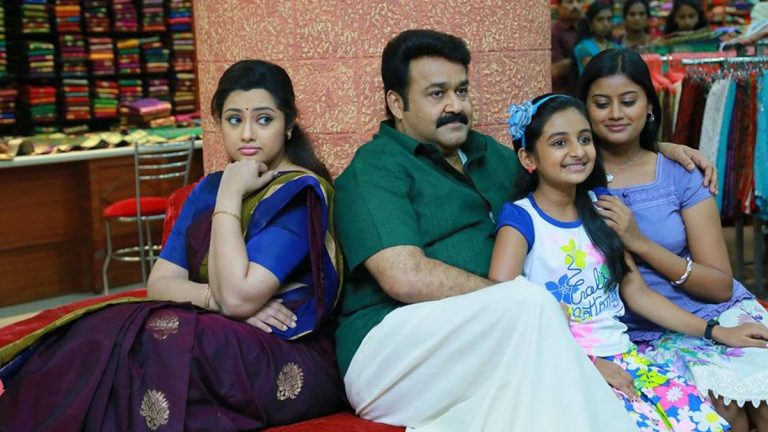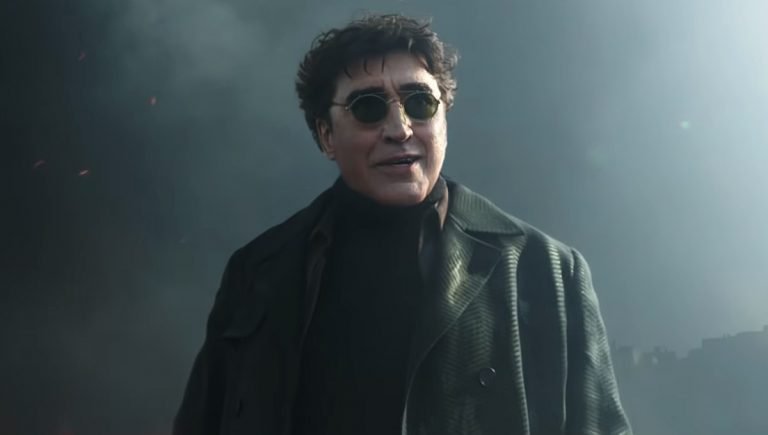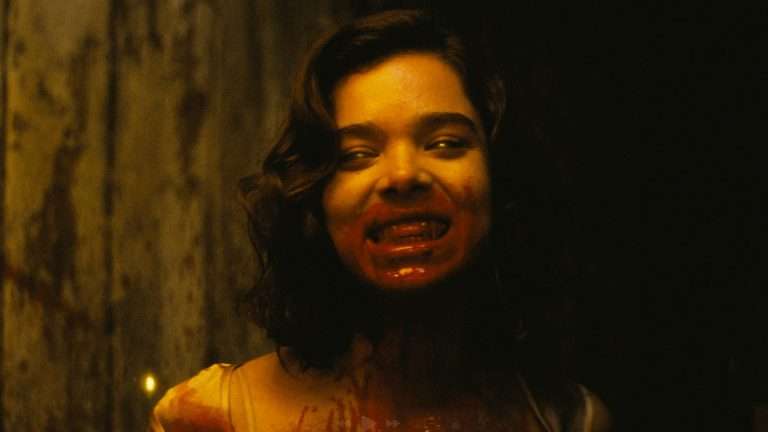All Coen Brothers Movies, Ranked: Bowlers deal with blackmailers. Burglars become bunglers. Imperfect crimes fall apart as easily as snow falls from the sky. Kitschiness is found in the most highbrow of places. Those are just some of the motifs that outline the filmography of Joel and Ethan Coen, who have been staking a claim over the American cinematic landscape for close to 40 years. Few filmmakers have been able to simultaneously flaunt their influences and push the medium forward in as exciting of a way as the Coen brothers have. Toying with conventions to the point that they’ve quietly pulled the rug without viewers even noticing, the writer-director siblings have given new meaning to comedy, drama, horror, westerns, film noir, and even musicals. And they’ve done it all without ever going so far as to make the same film twice.
It could be said that it’s just as easy to pinpoint the hallmarks of the Coens’ style as it is to suggest that they don’t really have a style. Similar themes and characters with shared ideals abound throughout the Coens’ filmography, but when all is said and done, each of their films stands alone. That is precisely what makes the idea of ranking each of them from “ok” to “legitimate game changer” all the more enticing and intimidating. The Coens have made more than a few masterpieces in their time, but we are more than game to see which of them stands above the rest. But well, you know, this is just, like, our opinion, man.
19. The Ladykillers (2004)

When Goldthwait Higginson Dorr, Ph.D. (Academy Award®-winner Tom Hanks, left), concocts the plot for the perfect heist, he rents a room from unsuspecting church lady Mrs. Munson (Irma P. Hall, right), in the hilarious comedy written for the screen and directed by Joel Coen & Ethan Coen
It says quite a bit about how gifted and respected Joel and Ethan Coen are as industry giants that not even their worst film is a complete dud. A misfire, to be sure, but not a dud. There is a certain sense of liveliness to the escapades of a group of buffoonish criminals who take up residence with an aging widow in order to rob a nearby casino from under her nose. A remake of the 1955 British comedy of the same name, The Ladykillers had the right ingredients to be a smash hit. We find the Coens transposing the setting from north London to the Deep South, meaning that the characters’ ineptitude and gullibility are inflamed by their hilariously thick and droll accents. Plus, in Coen fashion, there’s enough greed undergirding their intentions to send the entire operation downhill into a web of betrayal and desperation.
The Ladykillers was always going to have stiff competition in the form of a renowned classic lurking closely from its rearview, but the film does little to prop itself up in comparison. It has its share of comedic moments, but it’s far too unfocused and ungrounded in the abstract for any trace of character work or broad comedy to amount to anything. The ensemble, led by Tom Hanks’ bumbling “Professor” G.H. Dorr, is a mishmash of goons who never figure out what kind of chemistry they’re meant to have when rolled into one. While Hanks does give it his all, as one might expect, he’s far more eager to relish in his characters’ eccentricities than most of his co-stars, which include J.K. Simmons, Stephen Root, and Marlon Wayans. If 2022 is the year of strange Tom Hanks voices, then you may have the Coens to thank for how much you didn’t care for Elvis.
18. Intolerable Cruelty (2003)
Intolerable Cruelty may be shy of a few too many lunacy points for it to be considered the Coens’ weakest feature, but it’s nevertheless the film that does the least to represent who the brothers are as filmmakers. What business did the guys fresh off something as grisly and noirish as ‘The Man Who Wasn’t There’ have made a schmaltzy romantic comedy? Well, the material was never really theirs, to begin with. Originally slated to be helmed by Ron Howard, the film became the brothers’ first for-hire gig, having originally signed on as script doctors before signing on to direct, as well, once the job was repeatedly passed on. It’s one of the few instances in which the Coens shared screenwriting credit with someone else, and the finished product unfortunately speaks to that notion.
While they are able to wrestle a coherent and entertaining story out of the love affair between divorce attorney Miles Massey (George Clooney) and gold digger Marilyn Rexroth (Catherine Zeta-Jones), it’s difficult not to view the Coens’ personal touches as half-baked. To their credit, they aren’t shy about including some energetic wordplay and delightfully abrupt comedic timing that’s a staple of both their own work and the mid-century screwball comedies they so clearly harken back to. It’s a creative bonus that their two leads have infectious chemistry playing equally slimy individuals who can’t help but be drawn to how devilishly they crack one another’s systems. It’s unfortunate, then, that Intolerable Cruelty never fully justifies how corny and over-the-top the two become when their characters otherwise reek of calculation, especially with a convoluted third act that becomes trying and laborious the moment it begins.
17. True Grit (2010)
It’s not hard to see why True Grit is the Coen brothers’ biggest box office hit to date, or why it was a critical favorite at the start of the last decade. But alas, just as it’s easy to see why the film was nominated for a whopping ten Oscars, it’s also easy to see why it didn’t win any. And it’s not just because there were better movies that year. A reimagining of both the Charles Portis novel and the 1969 film starring John Wayne in the role that would nab him a gold statuette of his own, the premise remains the same: fourteen-year-old Mattie Ross (Hailee Steinfeld) hires booze-addled U.S. Marshal “Rooster” Cogburn (Jeff Bridges) to gun down her father’s killer (Josh Brolin). Owing to the passage of time, the Coens’ take on the story possesses more of the grit that its title proclaims than does its predecessor. It’s a sumptuous feast for the eyes with the unrivaled Roger Deakins helming the camera, countered perfectly by a score from Carter Burwell that generates intimacy within the sweeping landscapes Deakins is able to capture by day and night. Though not without that distant sense of American promise, the Coens’ version of the Old West is a barren wasteland of justice dodgers and revenge seekers. It’s the kind of playground their signature violence feels most at home in.
So, where does True Grit go wrong exactly? Well, it doesn’t, really. It simply lacks the kind of urgency necessary to steer itself right. The film doesn’t leave much for the viewer to ponder over, at least not anything that can’t be found from other iterations of the story or even one of the Coens’ other Westerns. It has grit but is lacking in truth, never quite capturing the deconstructible spirit of the genre in a way that remains in line with how the directors have approached it before. While Bridges is a natural choice for the lead role and makes the most of it by letting loose and giving Wayne a run for his money, it’s the Coens who have been reined in. It’s a logical, creative outcome, seeing as how True Grit is the most mainstream film they’ve made. And while a lesser Coen brothers film is a greater film by most anyone else, there’s still something frustrating when they’re forced to resurrect a formula that should’ve stayed dead.
Related List: The 15 Best Westerns of the 21st Century
16. Blood Simple (1984)
The Investigator, the Bar Owner, His Wife & Her Lover. That’s the basic setup for the Coens’ stylish and chilling debut, which is about as good as first features get. Featuring John Getz, M. Emmet Walsh, and a breakout performance from Joel Coen’s wife, Frances McDormand, Blood Simple is a testament to the power of independent cinema, at least in the sense that it allowed the Coens to lay bare all of their storytelling interests within the confines of a modest budget. Having served as an assistant editor for The Evil Dead, it was likely Joel Coen’s collaboration with Sam Raimi that instilled in him the ability to counter moments of shocking violence with grotesque humor that only their batch of Southern degenerates could find amusing. The Coens are wise to repurpose Raimi’s innovative camera techniques in addition to that macabre comedic timing, but the difference is that the dead stay dead in Blood Simple.
The real villains aren’t monsters from beneath us, but the people right in front of us. It seems like such an uncomplicated conviction, but one made all the more cogent when considering just how much it has come to define the Coens’ (almost) blemish-free filmography. No one comes away clean when Detective Loren Visser (Walsh) is hired by the seedy Julian Marty (Dan Hedaya) to murder his head bartender (Getz) for sleeping around with Marty’s wife (McDormand). This neo-noir is a classic game of cat-and-mouse in which the prize is nothing more or less than life or death. Blood Simple has it all: sex, lies, crime, punishment, and misunderstandings. More than anything, however, it has the growing pains that most film debuts arrive on the scene with; the Coens’ interests are presented in a more subdued and standard manner in comparison to the masterpieces they’d eventually create. But that only serves to make it a more compulsory watch. For relatively untested filmmakers to confidently realize their vision of a film’s atmosphere and look is nothing short of impressive.
15. Miller’s Crossing (1990)
1990 was a reigning year for gangster cinema. Martin Scorsese won the hearts of critics and audiences with the insatiable GoodFellas while Francis Ford Coppola brought his Godfather trilogy to a resounding, if unremarkable, conclusion. In the midst of things, the Coen brothers made a valiant effort to ingratiate themselves as serious filmmakers with this slice of Prohibition-era pie. They more than succeeded in that regard, even though what they produced was ultimately a mediocre film. Miller’s Crossing has that polished look of a picture fit for the well-dressed organized crime bosses that Tom Reagan (Gabriel Byrne) finds himself playing double agent for, but one can’t help but feel that the overly intricate and tightly plotted narrative never truly serves up a slam dunk of completeness. Even now, perhaps the most impressive thing about the film is that there were so many layers to the story that simply crafting it gave the Coens enough writers’ block to temporarily put it away and channel their frustrations into a new screenplay called Barton Fink, which they churned out in less than three weeks.
The film is a master class of style and period recreation; though the city in which the Irish and Italian mobs find themselves at war has no name, it has more than enough personality to make up for it. From an early stage in their career, the Coens were already demonstrating their flair for engulfing an audience within their worlds, commanding attention so as not to miss anything and respect because they were entitled to it. But something is fundamentally off in Miller’s Crossing. There are individual scenes within the film that, taken as they are, could be considered a series of masterful short films, what with the Coens’ brisk dialogue and a slew of great performances from the likes of Byrne, Albert Finney, and the Coens’ golden boy, John Turturro. But these scenes never coalesce into a coherent and emotionally consistent whole. It’s almost as if they were piled up on top of one another — not unlike the film’s unsurprisingly high body count — rather than sewn together into something genuine.
14. A Serious Man (2009)
While the Coens don’t typically dabble in overt religious imagery, A Serious Man is a notable exception. The duo mines their upbringing in a family of Jewish academics in 1960s Minnesota in order to answer some of life’s biggest questions to a varying degree of success. In one of his few leading roles, Michael Stuhlbarg portrays Larry Gopnik, a Job-esque professor of physics who is struck by a potpourri of tragedies that send his life into ruin and lead him to seek counsel in the local synagogue. Constantly questioning what he has done to deserve such a torturous existence, Larry’s search for answers that may never come makes for one of Coen’s more on-the-nose dissections of existentialism and the twisted randomness of kismet. It’s also a film in which their trademark misanthropy is laid on a little too strong.
Larry’s journey is certainly compelling, and one that finds humor in uncomfortable situations that leave us wondering if we really should be laughing. However, owing to the Coens’ predilection for leaving things open-ended and up to interpretation, it’s also one whose disinterest in laying things out works against it. Surely, it makes sense to anticipate Larry’s anguish and confusion, as they are feelings the Coens love to terrorize their characters with. For that reason, enjoying his struggles unfold from a distance isn’t entirely out of the question, either. A Serious Man is a chaotic and digressive film about how chaotic the world is when packed to a suffocating extent by digressive people. Nevertheless, its ambiguity is too far-reaching to give it the rewatch value that has come naturally to some of the Coens’ shiniest gems.
Also Read: A Serious Man (2009) – Facing The Elusive, Malevolent Unknown
13. The Hudsucker Proxy (1994)
Having cemented themselves as forces to be reckoned with following Barton Fink’s big win at the Cannes Film Festival, the Coen brothers found themselves with the financial backing to return to a project they had previously shelved, and one in which they could afford to cast bigger names. With Sam Raimi serving as co-screenwriter and second unit director, The Hudsucker Proxy was born. The film is a cocktail of Coen influences: their recreation of 1950s New York City recalls the Expressionist designs of Fritz Lang, while the likes of Preston Sturges and Frank Capra created the template from which the feel-good, zero-to-hero story of Norville Barnes (Tim Robbins) was crafted. Barnes is an ambitious college graduate who dreams of rising beyond his current slot in the mailroom of Hudsucker Industries. Ironically, his chance arrives when the board of directors conspires to sabotage the company’s stock and abscond with the controlling interests by appointing the hapless Barnes as their new president.
What these greedy old men, led by the always reliable Paul Newman, don’t know is that they’re facing a battle on two fronts: not only is a sharp-tongued reporter (Jennifer Jason Leigh) out to expose the scheme, but Barnes himself has an idea that’s about to change the world. The Hudsucker Proxy doesn’t pretend not to be a full-blown tribute to old screwball comedies, nor does it attempt to rise above the conventions of the genre by parodying them. It could be that seemingly retroactive outlook that caused the film to bomb at the box office and divide critics down the middle. But the film has an irresistible cheeriness to it to compensate for its various tonal shifts and archetypal character work. If it proved to be too big for the Coens’ britches, then it also reaffirmed their ability to provide true kineticism to their protagonists’ actions through a small-town point-of-view. Barnes might be a fool, but he’s exactly the kind of lovable Midwesterner to whom the Coen brothers would be eager to hand the world on a silver platter.
12. The Man Who Wasn’t There (2001)
Another film that works more as a recreation of its chosen genre rather than a sobering update for modern times, The Man Who Wasn’t There finds the Coens going full noir, complete with black-and-white cinematography and chiaroscuro lighting from Roger Deakins, who does some of his best work for the brothers right here. Although one of the Coens’ more infrequent collaborators, Billy Bob Thornton takes the lead as a lowly barber who ponders the meaning of life while attempting to fund a get-rich-quick scheme by blackmailing his wife’s boss (James Gandolfini) for their alleged affair. Ed Crane doesn’t have a whole lot to say, but Thornton’s cold and emotionless gaze suggests that there’s too much on his mind for him to even begin to spell it out. He captures every bit of the man’s futile existence with little more than a sneer, and it’s that blend of existential passivity and frustration that fuels the Coens’ transposition of classic noir elements from the urban underworld to the decidedly unglamorous town of Santa Rosa, California.
In true Coen fashion, The Man Who Wasn’t There brings adultery, embezzlement, and betrayal to an ordinary setting that’s meeting all of these impurities for the first time. It’s a film that captures the imminent sense of danger that befalls ordinary people who don’t look for trouble but wind up stumbling into it anyway. It just might be the brothers’ most depressing film for that reason, not to mention their most overlooked. Though it more often than not buckles under the weight of the heavy and provocative themes it seeks to explore, the film’s visual presentation is such an achievement on the part of the Coens, Deakins, and production designer Dennis Gassner that the film leaves behind more to unpack than many care to realize.
11. The Tragedy of Macbeth (2021)
While tackling William Shakespeare presents its share of challenges to any filmmaker, the announcement that Joel Coen would be temporarily parting ways with his brother, Ethan, to adapt one of the Bard’s most revered plays was greeted with more surprise than skepticism. After all, while the Coens’ reputation with adaptations had lent itself to mostly positive results, this particular production was one that had been put on countless times and reinterpreted by over two dozen filmmakers. What exactly could Coen bring to the table that had yet to be conceived? Then again, who are Macbeth and his austere wife if not the ultimate example of idealism corrupted by greed and hubris? They’re characters whose story the Coen brothers have been telling their entire careers, and Coen does well to helm a version of the play’s events that signify the debt his filmmaking quirks owe to them.
Petty conflicts of interest and the merciless hands of fate run amok in The Tragedy of Macbeth when a trio of witches prophesies that the titular general will soon rise to power as the new King of Scotland. A never-better Denzel Washington gives stature to Macbeth while the incomparable McDormand plays his cunning spouse who pressures and manipulates him into taking drastic actions on his path to the throne. While Coen’s monochrome presentation of the film’s rigid architecture and confined landscapes contributes, in equal parts, to the world-weariness of Shakespeare’s words, it’s his casting decisions that make all the difference. Washington and McDormand portray characters who are traditionally half their age, which alters and elevates the context of their decisions considerably. This Macbeth is not so much a sophisticated morality play as it is a wicked lament for missed opportunities and last hoorahs. And all put together by a filmmaker who, regardless of how many more opportunities he will have to leave behind something people will remember him by, can clearly feel his own years starting to slip away.
Related List: The 50 Best Films of 2021
10. The Ballad of Buster Scruggs (2018)
Six westerns for the price of one? Count us in! If anyone were qualified to package together a multitude of different stories set on the American frontier and make each one of them entertaining in their own right, it would be Joel and Ethan Coen. It’s that scattered quality that humbles The Ballad of Buster Scruggs. In a career abundant in idiosyncratic masterpieces, this Western anthology is one of their most idiosyncratic, dropping a few pegs below their previous work only because the episodic structure of the film deliberately calls attention to the diverging tones of each story. But the Coens are acutely aware that a film with parts greater than the whole does not carry the weight of expectation that any of their feature films might. Thus, with The Ballad of Buster Scruggs, their focus is on using their trademark wit and nihilistic outlook on the Old West to make each story as good as it can be, knowing full well that viewers will be able to pick and choose which stories they do or do not care for.
A gunslinger with a passion for song, dance, and murder. An orator with no arms or legs and his ungrateful impresario. A group of anomalous wanderers who experience hallucinations and apparitions while sharing a stagecoach. And that’s only the half of it. The Ballad of Buster Scruggs has a little bit of everything, with each story tying itself to the Coens’ understanding of the unpredictable inconveniences and harsh realities that make up life itself every bit as much as they make up the frontier. It’s not entirely Revisionist enough to bend non-stalwarts to its will, nor does it offer the kind of remorseless neo-Western travesties that allow a film like No Country for Old Men to shine brighter. But it has enough love and respect for the genre to know when to play around with dated mythologies and when to treat their ingrained nature with dead severity.
9. Hail, Caesar! (2016)
The Coen brothers have made better odes to entertainment, but this tribute to the Golden Age of Hollywood deserves far better than the mixed reputation it has garnered, if for no other reason than because it’s one of the directors’ purest distillations of unadulterated fun. It’s the 1950s, and Capitol Pictures struggles to stay afloat with fixer Eddie Mannix (Josh Brolin) as the puppeteer keeping his talents’ scandals and licentious vices firmly behind the curtain. If a musical cowboy trying to break out as a serious actor (Alden Ehrenreich), a newly pregnant starlet (Scarlett Johansson), and a malcontent director (Ralph Fiennes) weren’t bad enough, Mannix is about to reach his breaking point after the studio’s biggest star (George Clooney) is kidnapped while in costume for a swords-and-sandals epic. Hail, Caesar! is a loose recreation of the cultural stability that pervaded the screen during the time, but it’s rife with its own set of affable hijinks and a roster of players so qualified that it’s almost unfair how well the unconnected nature of the plot manages to stick the landing.
The directors afford themselves the opportunity to play fast and loose by placing a figure like Mannix, a man who has seen how much passion and creativity the movies can inspire to the point that he’s become desensitized to it all, at center stage. Like a smorgasbord of filmmaking fever dreams, the Coens and Roger Deakins float through a myriad of backlots and film sets that give life to some of the decade’s most profitable genres. Of course, it’s not their kind of picture if their trademark cynicism isn’t masked by the aloofness of their characters. The standout, in that regard, has to be Clooney as Baird Whitlock, whose hundred-watt smile and rugged voice can’t save him from his five-cent head. So easily persuaded he is to take up the cause of the blacklisted screenwriters who hold him for ransom that all it takes is a good slap to the face to snap him out of it. While still a play on the capitalism that structures the system, a second glance reveals Hail, Caesar! as a thoughtful, if not necessarily deep, examination of the purpose the Coens’ chosen medium has, which would only grow greater in the decades following Mannix’s tribulations.
8. O Brother, Where Art Thou? (2000)
While this Depression-era retelling of The Odyssey is one of the Coen brothers’ most recognizable works, it’s also a film whose cultural durability has been all but defined by the astonishing success of its soundtrack. And while O Brother, Where Art Thou? is more often than not a scenic roadmap for its heavy dose of bluegrass, it’s also a stunning representation of the Coens’ commitment to historical authenticity as they meld together crime and screwball antics to convey their love for ruminating over the past. Following a trio of convicts (George Clooney, John Turturro, Tim Blake Nelson) who escape a chain gang to search for lost treasure, the film’s Southern satire features run-ins with a who’s who of Coen crooks and malefactors whose ties to Homer are far more clever than the brothers are willing to let on. Crooked politicians, a one-eyed Bible salesman, singing sirens, and even the Ku Klux Klan put up a deceptive and untrusting front, their threats undercut only by that quintessential Coen blend of folksiness and oafishness that has us laughing at them and never with them.
O Brother, Where Art Thou? has the distinction of making its variety of esoteric elements accessible for the masses. To be fair, any film is inviting when Roger Deakins is behind the camera, but even so, his desaturated palette makes the film a vintage series of photos come to life, the perfect context for the Coens to reach deep into the annals of historical literature in order to make some sense of the evolving American landscape. It’s a land that’s become too ridiculous not to poke fun at, a place where nothing is taken so seriously that an epic poem can’t be reshaped into a hilarious musical adventure. But it’s also the place where the past is never too far away, in ways as morbid as a white supremacist rally and as rejuvenating as a collection of contemporary country singers performing some of the Greatest Generation’s most fondly remembered tunes.
7. Raising Arizona (1987)

Breaking free from the noir corner Blood Simple could have easily shoehorned them into, the Coens’ second film is the two at their sweetest and most tender, never to express quite as much sympathy for their characters again. Starring two of their most memorable creations, Raising Arizona follows H.I. “Hi” McDunnough (Nicolas Cage), an ex-con who has settled down with local cop Edwina (Holly Hunter). When the newlyweds discover they are unable to have children, they come up with the harebrained idea to steal one from businessman Nathan Arizona (Trey Wilson), whose wife has just given birth to quintuplets. In addition to having one of their most whimsical and inspired inciting incidents, the film has an adorable, homespun charm to it due to its characters’ modesty and the desperate lengths they go to just to get a little bit of what everyone else wants.
Cage and Hunter have rarely been better as a couple of simpletons who have plenty of love and no way to give it. They know they have it in them to do right, but don’t have the willpower to trust a world they think is out to get them. Thirty-five years later, Raising Arizona is still making a living off the pair’s wild antics as Hi and Ed plunge themselves and their Southwestern community into chaos. Reminiscent of a Tex Avery cartoon, the film’s pitch-perfect comedic timing is intensified by Carter Burwell’s yodel-heavy score and the organic dialogue the Coens fashion for their lovable ensemble of hickish morons, which includes the first of many appearances in their filmography by John Goodman. It’s their fastest-paced film, replete with lively energy and copious amounts of hard right turns as the McDunnoughs evade the law and an ethereal bounty hunter (Randall “Tex” Cobb). It’s also the Coen feature with the strongest heart, as it delightfully sends up the ideas surrounding the nuclear family as they had permeated the decade in which it was released.
Also Read: 10 Best Nicolas Cage Movie Performances
6. Burn After Reading (2008)
It was arguably the biggest gamble of the Coens’ careers when they decided to follow up their Oscar-winning efforts on No Country for Old Men with their most straightforward farce, trading in their most calculated character for a myriad of their most misguided and, in the case of Brad Pitt’s Chad Feldheimer, just plain dumbest. It’s one thing to turn some of Hollywood’s most respected actors into the world’s biggest idiots, but it’s another thing entirely to do it well. Burn After Reading sees the Coens accomplish precisely that when a group of gym employees (Pitt, McDormand, Richard Jenkins) discover a disc with confidential information and attempt to blackmail the CIA agent (John Malkovich) to whom they believe it belongs. With a ridiculously convoluted narrative that also includes Tilda Swinton as the agent’s wife and George Clooney as her paranoid lover, the film never breaks a sweat as it devolves into a hilarious caper in which no one ever seems to know what’s going on.
“What did we learn?” That’s the question rhetorically asked of the audience by the time Burn After Reading reaches its unremarkable decrescendo. It’s one of the preeminent examples of the clueless and conceited doing things as clueless and conceited as they are, with none of it amounting to anything. While it treads familiar Coen ground, it relishes in the chaos and deliberately eschews any type of greater meaning. Instead, the film is a showcase for actors who swing for the fence regardless of how out-of-hand things become. Clooney undercuts suaveness with foolishness, Malkovich barely keeps his sanity in check, and Pitt, clad in short shorts and earbuds on full blast, leans right into his character’s airheaded impressionability. The Coens, of course, throw a bit of bloodshed and plenty of misunderstanding into the mix for good measure. It’s a good thing they do because the film’s moronic tone and pointless nature conceal a startling but sure-handed portrayal of disinformation that has only grown more relevant with time.
Also Read: 10 Best Brad Pitt Movie Performances
5. Fargo (1996)
Few films in the Coens’ distinguished oeuvre encapsulate their distinctive grasp on humanity’s vagaries better than Fargo. Concluding with the simple declaration that “there’s more to life than a little money,” it’s that statement that would go on to set the tone for the remainder of the brothers’ careers and inspire an FX series of the same name. One of cinema’s most fascinating explorations of duality and the eternal pull of right and wrong, Fargo pits the kindly allure of a small Minnesotan town against the senseless violence that has left the snow-covered streets littered with splashes of red. On the side of justice is pregnant police chief Marge Gunderson (Frances McDormand), whose investigation into a series of gruesome murders has her hot on the trail of witless car salesman Jerry Lundegaard (William H. Macy). Jerry has plotted with two equally incompetent thugs to have his wife kidnapped in order to extort his wealthy father-in-law. But this is Joel and Ethan Coen we’re talking about. Where would the story be if Jerry’s plan didn’t go wrong in every conceivable way?
Fargo was the Coens’ return to their film noir roots after the box office failure of The Hudsucker Proxy; the Oscar-winning screenplay overflows with a blend of unchecked bloodshed and the minimalist charm that made them such promising filmmakers in the first place. Its Midwestern sense of humor is as black as the snow is white, and the same is true of the line the Coens draw between the film’s eclectic host of villains and its heroic law enforcement. In her career-defining performance, for which she earned her first of three Oscars, McDormand plays the kind of person anyone would love to have for a friend and every small town in the world would be proud to have as a defender. A wholesome personality and resourceful intuition make her the faint gleam of hope in a world with very little of it, not to mention one of the few true heroes across the Coen brothers’ filmography. Though not quite as factual as the film’s opening crawl claims it to be, Fargo is nevertheless the Coens’ most tangible and universal film, if only because the characters are some of their most down-to-earth. When greed is already a destructive construct, the two encourage us to consider how calamitous our perception of it can be once it corrupts neighbors, friends, and, God forbid, families.
4. Barton Fink (1991)
The film that solidified the Coen brothers as filmmakers to watch out for, this unconventional Palme d’Or winner is also their most textured film. Combining elements of neo-noir, horror, mystery, and buddy comedy, Barton Fink was the first film in which the Coens’ irreverent style and equally irreverent storytelling managed to stay on even ground with one another. Following a renowned Broadway playwright (John Turturro) who makes the transition to Hollywood, the film finds the titular Fink in over his head when one distraction after another, including his pestilent but well-meaning neighbor Charlie (John Goodman), leaves him with a crippling case of writer’s block. The film is a paean to the creative process and the struggles any storyteller faces when working in an industry that feigns interest in their abilities. But at once, the film spins wildly between multiple genres in order to create terrifying exaggerations from those struggles while matching the chaotically fragile state of Fink’s mind.
Stylistically, Barton Fink would set the stage for many of the Coens’ visual flourishes, as it was their first collaboration with Roger Deakins, who evokes shades of The Shining in the psychological dread he creates from within the hotel Fink and Charlie call home. However, the true pleasure of the film is watching the Coens challenge themselves and an entire system in a wildly original fashion. By the time the credits roll, one gets a sense of just how effortless it was for the brothers to create Barton Fink. Their disdain for the film industry and its calculative practices is laid bare for all to see, but they are just as quick to walk the line between their own humility and Fink’s scholarly condescension. Unlike the Coens, he’s working with a genre he has no experience in, claiming to be a writer for the people yet creating characters he’d choose not to associate with every day of the week and twice on Sunday. The film traverses a complex battlefield in which artistic integrity and the allure of money find themselves at odds, and one in which erroneous acts of self-importance only serve to muddy the waters.
Also Read: The 25 Best Movies About Writers
3. Inside Llewyn Davis (2013)
If Barton Fink is a meditation on the alienation that comes with superiority, then Inside Llewyn Davis is a tribute to those who refuse to compromise on dreams they’ll never be fully qualified to reach. If the former is attempting to find the reasoning in what we’re meant to do once we make it, then the latter encapsulates how making it is far more dependent on good fortune and timing than anything else. In a long line of Coen also-rans whose only true proclivity is digging themselves deeper into a chasm from which there’s no escape except surrender, Llewyn Davis may be the one with the best chance of climbing out. But it’s not enough to stop the Coens from putting him through the wringer as he navigates personal, professional, and financial straits on the streets of Greenwich Village in 1961. What results is one of the brothers’ gloomiest but also reassuring films, and one of their strongest pieces of artistic introspection.
In a star-making performance, Oscar Isaac embodies the pessimistic yet persistent folk singer who’s unaware that his chosen genre is only days away from drawing in the audience it’s been begging for. Until that day arrives, however, he has to contend with the week from hell. Every step forward is met with three steps back as the ghosts of Davis’ past cast an eternal cloud over his present, leaving him at the mercy of friends who think he’s scum, a family that wants him to get real, and an industry he may not even want to understand. He’s a self-righteous self-sabotager like no other, and in a world as depressing as this — no thanks to the brilliant color grading by cinematographer Bruno Delbonnel in what just might be the most visually resplendent Coen film to date — his odyssey could easily match his surroundings for sluggish pace. But it never does, if only because there’s no destination in sight. It’s a story of people without purpose told by a duo that was lucky enough to find theirs when they did. It would be only too easy for the Coens to deem themselves better than Davis (and they are), but they have enough humility to remind us that there’s nothing wrong with not being the heroes of our own stories.
2. No Country for Old Men (2007)
Fifteen years removed from its Oscar wins for Best Picture, Best Director, and Best Adapted Screenplay, it seems that there’s little that can still be said about No Country for Old Men and its status as one of the Coen brothers’ finest works. But we’re willing to give it a try, especially since it’s a film that will, never, not invite discussion. Taking their contempt for greed one step further than they did in Fargo, the Coens practically reinvented the western genre for the 21st century with this bleak and nihilistic masterpiece about Llewelyn Moss (Josh Brolin), who finds himself in the wrong place at the wrong time and becomes the target of compassionless hitman Anton Chigurh (Javier Bardem). An adaptation of Cormac McCarthy’s novel that’s almost too faithful, the film matches its bestselling source material for cold and brutal honesty, translating the writer’s lack of punctuation and quotations into a work of vivid imagery — we really can’t thank Roger Deakins enough — and overwhelming directness.
Bardem fashions one of modern cinema’s greatest villains, and the closest thing the Coens have to a full-blown monster, as he stalks the barren Texan landscape to track down the money he’s been assigned to recover. Chigurh is a stoic, bloodless manifestation of Alfred Hitchcock’s bomb under the table: we see him coming but the rest of his world does not, and knowing he’s about to go off will never be enough to keep us from seething with anticipation. He’s as silent and deadly as the film he wreaks havoc upon, a testament to how well the Coens are able to fashion unbearable intensity and grievous bloodshed out of moments of pure silence. Carter Burwell’s score blends in with the sonic environment of No Country for Old Men to the point of virtual muteness, leaving the shots of guns, the shattering of glass, the beep of a tracking device, and the curdling sounds of death to keep the unrelenting story moving toward its fateful and shocking denouement. While the Coens had created realistic carnage before and have done so since, it was with this film that they were able to let audiences in on how little that savagery means to their characters and how much it means to a world that still hasn’t fully rectified it.
Related List: 10 Greatest Oscar Best Picture Winners of All Time
1. The Big Lebowski (1998)
Some films inspire a television series. Others inspire a podcast. Some even go so far as to inspire a video game. But the Coen brothers have proven that the truest sign of a film’s cultural endurance is when it inspires a religion. In fact, the everlasting appeal of The Big Lebowski remains so stunningly widespread that the practice and philosophy of Dudeism is just one facet of its value to Coen fans and casual filmgoers alike. A slacker comedy for the ages and arguably the most celebrated cult film of the last 30 years, The Big Lebowski centers around the Coens’ most iconic character, Jeff Bridges’ eponymous Jeffrey Lebowski (He’s the Dude. So that’s what you call him. That, or Duder. His Dudeness. Or El Duderino, if, you know, you’re not into the whole brevity thing.) A case of mistaken identity sends the Dude, like many a Coen protagonist, careening down a rabbit hole of kidnapping, blackmail, and embezzlement, one made all the harder to navigate with the eternal haze of marijuana smoke hovering just in front of him. More than up to the task of misdirecting audiences and subverting expectations, the film is perhaps the Coens’ greatest parlor trick: initial viewings paint it as one of their loosest plots when it’s actually their tightest of all.
White Russian in hand, the Dude is the embodiment of going with the flow, just the right counterpoint to his best friend Walter (John Goodman, in a career-best role of his own), a short-tempered Vietnam veteran who’s much quicker to slug it out than hug it out. The film’s star-studded cast also includes Julianne Moore, Flea, Philip Seymour Hoffman, and Steve Buscemi, who rounds out the Dude and Walter’s bowling team as the introverted, “out of his element” Donnie. Filled to the brim with an endless stock of one-liners that are veritable scriptures to its devotees, The Big Lebowski is a film that’s worth rewatching the moment it’s over, as the Coens’ wordplay and the actors’ deliveries unite as one in an absurd story that’s not meant to be deciphered. The film can be engaged from a variety of subtexts, whether political, psychological, or, in the case of Dudeists, spiritual, and all because its ruthless manner of humor leaves no stone unturned. The Coens mock American institutions as bravely as they find side-splitters within pointless small talk. In the Coens’ world, a simple conversation can be as pointless and incomprehensible as a war in the Persian Gulf, and the directors take all of it about as seriously as the protagonist takes himself.




